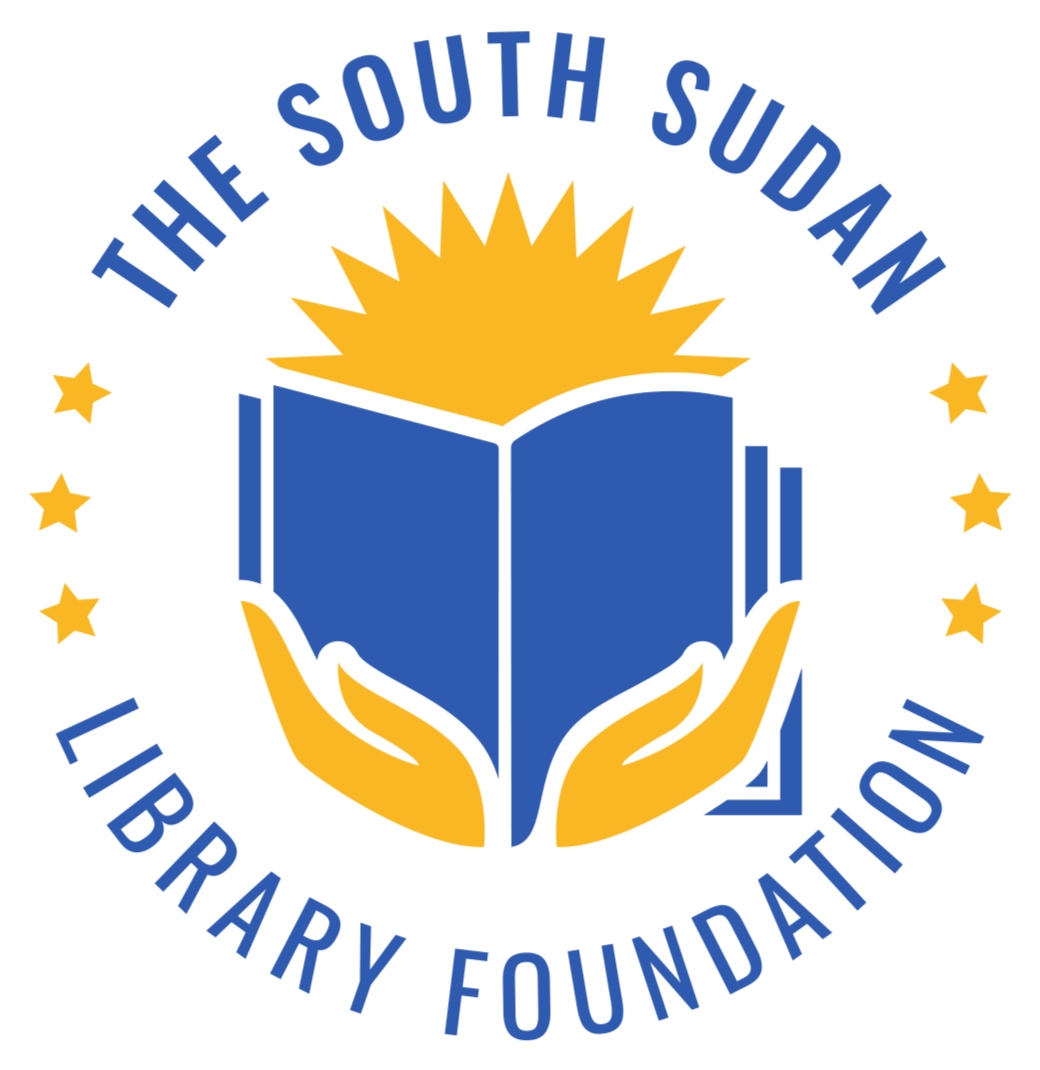The SSLF Women & Girls Program
A woman reading at SSLF’s Public Peace Library in Juba, photo taken by David Dhal Malual.
The SSLF Women & Girls Program
The Juba Public Peace library is a flourishing community center and education hub where students of every age have access to books, study rooms and power outlets to charge their devices, which can be a challenge to find in South Sudan.
SSLF is currently in the process of launching our very first Women & Girls Program with the goal of fostering education and leadership development and providing resources to women and girls in Juba. The program will facilitate cohorts of twenty girls for three months at a time and will meet biweekly. Each session will feature local female leaders as keynote speakers, as well as smaller breakout groups, discussions and Q&As.
Every woman and girl who attends the program will be provided educational resources such as pens, paper, food and drinks while attending sessions, and will receive a certificate of completion upon graduating from the three month program. After the program, our hope is that the attendees will remain in touch, and will have built a community of mentors, peers and resources to support their educational and career development journeys.
Why did we start with this program?
South Sudan was established and recognized as a nation in July 2011, which makes it the youngest country on Earth. In December 2013, a political power struggle broke out igniting the South Sudanese Civil War. It is estimated that 400,000 people were killed in the war. The most vulnerable members of society are often those most harshly impacted in times of war. The United Nations has recognized South Sudan as a crisis zone and has categorized the state of women in the region as a state of emergency. The UN has also specified that the top priority of South Sudan in order to rebuild a better future for the entire nation be the inclusion of women in peace talks and in leadership positions.
Throughout South Sudan, many women lack the ability and opportunity to access education and health resources. According to the World Bank, 51% of the population in South Sudan is living under the poverty line. In turn, many women in South Sudan are not provided the opportunity to go to school and must stay at home and help their families, and as a result are illiterate. Women also suffer due to child marriage, rape used as a tool of war, gender based violence and maternal mortality. According to a Household Health Survey, 46% of women with no education are married before the age of 18. Many of these women are married off rather than attending school and receiving an education.
Some of the facts:
Education rates are extremely low with 27% of the adult population literate: 40% of men over 15 years compared to 16% of women over 15 years. - CARE Gender Brief, SS
UNICEF estimates that 70% of children aged 6-17 years have never set foot in school. - CARE Gender Brief, SS
The Transitional Constitution and Bill of Rights (est. 2011) provides guarantees for the equality of men and women. It recognizes the historic inequalities between women and men in South Sudan and sets out a 25% Affirmative Action quota for women in legislative and executive bodies. SS will not reach this goal without infrastructure and education support for women. - CARE Gender Brief, SS
CARE’s GBV baseline survey conducted in October and November 2013 found that rape, beatings, psychological abuse, denial of education and economic opportunity were both commonplace and seldom reported. Gender-based-violence is common with 41% of respondents in a 2009 UNIFEM survey reporting having experienced gender-based-violence within the last year.
In South Sudan 82% of women and 81% of men agreed that “women should tolerate violence in order to keep her family together.” - CARE Gender Brief, SS
There is no specific domestic violence law in South Sudan. Early marriage is very common: 45% of girls married before they were 18 years old. - CARE Gender Brief, SS
Rural women and girls of reproductive age (13-49 years) who have few or no assets survive on less than <$1.25 per day. - CARE Gender Brief, SS
South Sudan has the highest rates of maternal mortality in the world: 1 in 7 women will die from childbirth or pregnancy (2054 per 100,000). - CARE Gender Brief, SS
In South Sudan, only 17.4% of indicators needed to monitor the SDGs from a gender perspective are available, with gaps in key areas such as Violence Against Women, Unpaid Care and Domestic Work and Key Labor Market indicators such as Gender Pay Gap. You can’t manage or improve what you can’t measure. It’s time to work with women in this region, measure the current state, and enable community-led change so that the girls and women of SS can transform their nation from the inside out. - United Nations
How you can help:
We are seeking $7,500 to fund the first cohort of the Women & Girls program. The funding will go toward:
Educational materials for the attendees
Payment for the guest speakers
IT equipment (such as a projector for slideshows and a microphone)
Food and beverages for the attendees
Payment for the organizers and library security guards
Safe transportation for the speakers and attendees
COVID safety equipment such as masks for all participants
If you would like to support this initiative please visit our GoFundMe page and donate or share with your family, friends, company, and community. We are extremely grateful for your support.

